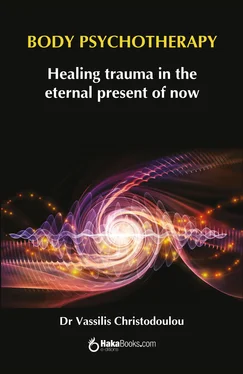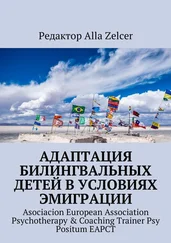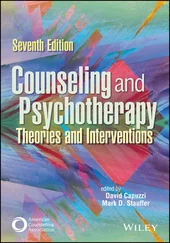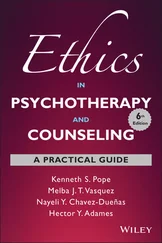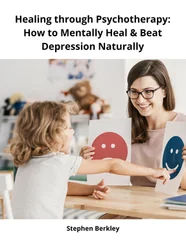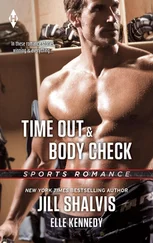In very many families there is a tendency for the parents to seek to ‘protect’ their children from the inevitable, whatever that might be. Believe me, there is no better way to deal with tragedy of any kind than by telling the truth. In such cases there should never be any dilemma over whether we should or should not tell somebody about something that we cannot ‘protect’ them from. The most extreme case of child ‘protection’ that I have come across was that of a young man who lost his mother from cancer when he was five years old and had the fact of his mother’s death concealed from him by his immediate family, and above all his father, in order to ‘protect’ him. Even if you keep its mother’s death secret from a child, how will you make up for the loss of the mother as a person? In any case, regardless of this, energy-wise, the child already knows that its mother has died even before we tell it. Talking to the child about the event and the formalities associated with it will ground and humanise the experience and make it more acceptable, and this will give the child access to pain and enable it to manage it. Anything less will leave the child exposed, excluded from the society of its equals, and will cast it into an existential void where the pain of any future loss will not only fail to cause it any distress but will also trap it in a constant flirt with madness. I am not referring, in this case, to feelings of guilt that the child may experience with regard to its ‘vanished’ mother; not because there won’t be any, but because the child will have to deal with issues of a more primitive nature relating to its existential being, and the issue of guilt appears at first to be redundant.
One can imagine how much unconscionable pressure was brought to bear on this child to prevent him from ever asking his father the obvious question: ‘Dad, where's mum?’ Two years later the father had announced to the child that he was going to have a new mother. Just like that: ‘You're going to have a new mother.’ Not a word about his ‘old’ one… Even when the child grew up, nobody spoke to him about his ‘old’ mother. How is it possible, one would ask, for someone to conceal a mother’s death from her child without believing that there would be a price to pay for doing so? One can imagine what insecurities and defences the father had to make him do such a thing.
Apart from this very extreme case, I can also recall that of a woman who lost her father when she was young.
I can remember – I must have been about nine or ten – when, returning home from school one day, I saw a lot of cars outside and people inside the house. I was overjoyed when I realised they were relatives. We didn’t have any other relatives in the town where we lived and so whenever relatives came to visit us from another town I always found it a cause for celebration. I didn’t notice, at first, that they were all dressed in black. They all looked at me with a blank expression. My joy evaporated; nobody smiled at me and they were all looking right through me, pretending not to notice me, until an aunt of mine took me by the hand and led me outside the house. It was then that I managed to overhear somebody say something about me: ‘She doesn’t know.’ Then I realised what I wasn’t supposed to know: my mum wasn’t at home. My aunt told me that she was at the hospital because something had happened to dad… I don’t recall exactly what she said to me. I realised, however, that it was bad news and that I would never see dad again. I started to cry; she took me in her arms and hugged me so tightly that I can still remember it, and she told me not to cry in order to help my mother. They didn’t even take me to the funeral… Ever since then I never cry, never… If I feel moved, I might shed one or two tears, but that rarely happens.
It is no wonder that she does not cry, that she does not shed tears: the sadness, the surprise, the pain and the tears are etched on her face, just like on the face of a clown. You look at her and you feel sure that if she cried, this face would disappear, that the clown’s mask would dissolve and her own face along with it.
Good intentions are not always good and they definitely do not always do good; as the old saying goes: ‘the road to hell is paved with good intentions’. I also question the intentions of many of those adults – often relatives – who in such cases ask the children to support the remaining parent instead of doing so themselves, as they ought, to the best of their ability. It is not enough that the child should lose one of its parents; it is not enough that, often, we do not allow it to mourn with us – left on its own, it will simply freeze the whole process in its body –; on top of all this, we ask it to support the very person who should be supporting it themselves – the one remaining parent – thus leading it up a blind alley. The situation for the child is tragic. It is faced with having to suppress its own fears and insecurities and the pain of its loss; and at the very moment it needs support itself, whatever kind of support it can get, it is called upon to lend support itself because over it hangs the threat that, without the one remaining parent, it too will die…
When those people who have frozen energy in their bodies absorb energy from others, however much it is, they cannot capitalise on it. The way for them to regain an energy flow is to release their own energy through exercises, psychotherapy and, more particularly, body psychotherapy, meditation and prayer, which helps to coordinate the body’s energy centres.
Each of us has a certain amount of energy
As we have seen, then, every individual has a certain amount of energy and if it accumulates at one end of the body, there will be a deficiency at the other end. For this reason, as therapists we turn to the pelvis and the legs, at the other pole, for it is there that we will find a shortage when there is an excessive amount of energy accumulated in the head. We do the same for both the front and back of the body. And following this basic guideline, we always work with the aim of achieving a balance. In the case of one particular patient, it took a great many therapy sessions to get the energy in the head, the neck and the constantly tense shoulders to move first of all towards the hands and then towards the pelvis and the legs. Like various other patients of mine, when this patient played football he would feel glad whenever he was hit on the legs because these blows opened up the lower part of his body, which was not only unknown to him but also, if I might use the phrase, uninhabited by him… Thoughts, obsessions and ‘mental blocks’, as he calls them, are his distinctive characteristics. He is liable to make an issue out of nothing, even small insignificant things, even though he realises that he should take no notice of them. At work, he is one of the most conscientious civil servants, although he is plagued by numerous insecurities and even fears that he might be fired:
When I start thinking negatively, my imagination runs wild. When I have these thoughts, I feel that anything is possible. There’s no dividing-line between what’s rational and what isn’t… Now, however, I’ve learnt to restrain myself by asking myself the question: ‘What would Mr. Christodoulou say about this?’ I’m also helped by the grounding and walking exercises I’ve learnt, otherwise I feel terribly worn out, as if I only had half a body, without any pelvis or legs.
In the case of this patient, the energy, in embryological terms, is trapped in the exoderm. The way he thinks does not help him in his daily life. The trapping of energy in his head and in his diaphragm obstructs the flow of energy to the legs and to the ground. Therefore, in order to change this situation, we work mainly with the neck and the diaphragm.
Читать дальше
